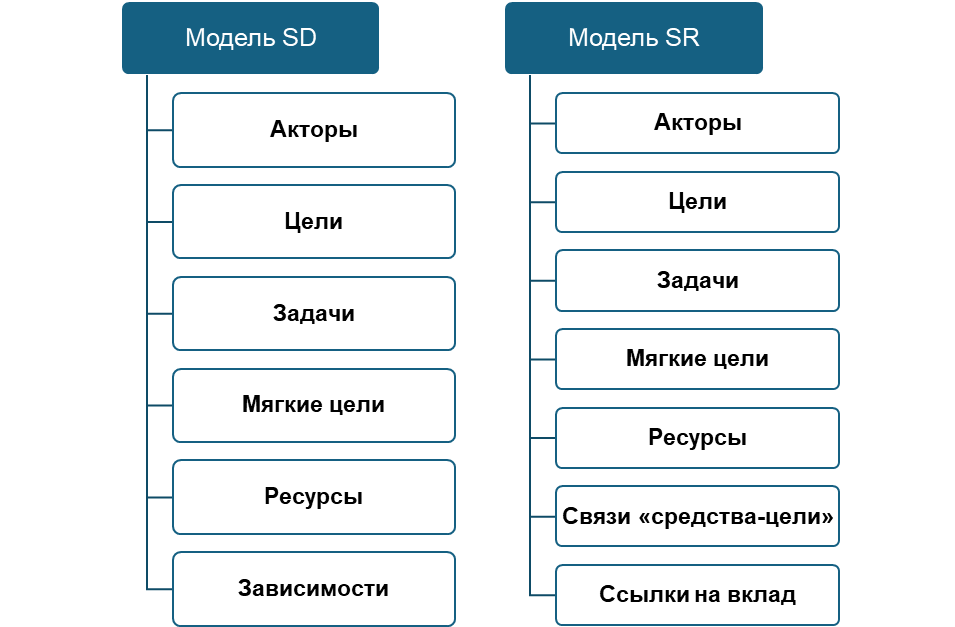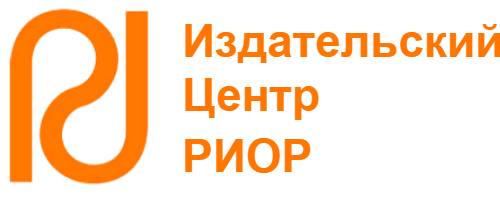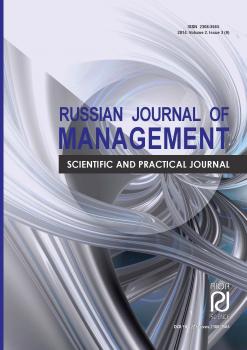Russian Federation
Rostov State Transport University
VAK Russia 5.2.1
VAK Russia 5.2.4
VAK Russia 5.2.5
VAK Russia 5.2.6
VAK Russia 5.2.7
UDC 33
CSCSTI 06.00
Russian Classification of Professions by Education 38.00.00
Russian Library and Bibliographic Classification 6
Russian Trade and Bibliographic Classification 7
BISAC BUS BUSINESS & ECONOMICS
Designing sustainable economic systems is essential for solving various problems of the modern economy and suggests that in order to maximize the impact of sustainable solutions, it is necessary to effectively integrate people, machinery and technology. There are no methods for conceptually constructing such (eco) systems that integrate the listed elements and evaluate their safety before implementation. In this article, this gap is eliminated by proposing the Intellectual sociotechnical Cenosis (ISTC) framework, which contributes to the design representation of such systems by using the Model-Driven IT Governance (MoDrIGo) framework on the cenosis theory platform. The scalability and versatility of the framework allow it to be applied in a variety of contexts, allowing for the creation of customized circular ecosystems for sustainability, tailored to specific human and technological needs
modeling, economic security, framework, sociotechnical systems, values
Введение. В современных глобальных условиях поиск устойчивых экономических моделей, гармонирующих сложные связи с природной, социальной средой и учитывающие закономерности технической эволюции, становится все более актуальным. То есть представляет собой междисциплинарную задачу, требующую объединения научных, технических и социальных представлений в рамках единого фреймворка. О срочности свидетельствует эскалация последствий изменения климата, которые представляют глубочайшие риски для экологического баланса, благополучия людей и экономической стабильности во всем мире. Эта задача требует смены парадигмы в том, как структурируются и функционируют экономики, отходя от традиционных моделей, основанных на добыче и потреблении, к системам, которые отдают приоритет устойчивости, круговороту ресурсов и экологической ответственности. Такая трансформация необходима для достижения двойной цели содействия экономическому росту и снижения деградации окружающей среды.
В стремлении справиться с экологическим кризисом бесшовная интеграция человеческого понимания и технологических инноваций становится важнейшей стратегией. Этот подход основан на более широком признании того, что решение сложных современных проблем требует синергетической интеграции человеческого понимания и передовых технологических инноваций, когда для разработки устойчивых решений, которые уравновешивают социальные потребности с технологическим прогрессом, применяют междисциплинарный инструментарий.
С одной стороны, понимание локальных контекстов, социальной динамики и поведения человека имеет важное значение для обеспечения принятия и эффективности любого предлагаемого решения. Такие человекоцентричные соображения имеют важное значение для адаптации характера вмешательства, которое необходимо осуществить [3].
С другой стороны, роль прорывных технологий, таких как блокчейн, искусственный интеллект (ИИ), цифровой двойник, Интернет вещей (IoT) и другие, невозможно переоценить в вопросе решения задач синтеза знаний. Данные технологии предлагают новые способы эффективного мониторинга, управления и смягчения воздействия на окружающую среду, вводя новый уровень точности и ответственности в усилия по обеспечению устойчивости.
Подобная синергия между человеческими и технологическими достижениями отражает более широкий сдвиг в сторону более интегрированного, целостного подхода к решению проблем. Это означает движение к будущему, где технология является не просто инструментом, а партнером в создании устойчивых решений, которые уважают и отвечают потребностям человека и экологическим императивам. Моделирование позволит использовать синергетические достижения не только в планировании изменений макроуровня, но и даст выход на микро- и мезоуровень [2]. В этом контексте интеграция человеческих идей с технологическими возможностями становится платформой для инновационных стратегий, способствующих глобальному стремлению к экономической безопасности и устойчивому развитию.
Несмотря на растущую зависимость от технологий для решения проблем экономической безопасности и устойчивости, полный потенциал интеграции технологических решений с социумом остается в значительной степени недоизученным или, точнее, неподдерживаемым в процессе создания моделей.
Для разработки адекватных решений необходим структурированный подход, который помогает экспертам в области моделирования и технологий в проектном мышлении. Такой процесс мог бы:
1. Поддерживать изучение возможностей, преимуществ и недостатков интеграции прорывных технологий для заинтересованных сторон экосистемы в циклические и устойчивые среды;
2. Обеспечить соответствие интегрированной социально-технической экосистемы стратегическим принципам и целям устойчивости;
3. Разработать социально-техническое решение для архитектуры операционного программного обеспечения или базы данных для будущей технологической поддержки или (на уровне экосистемы) моделирования цифрового двойника (до физической реализации/развертывания).
Основной материал исследования. В научной практике акцент делается исключительно на технологических инновациях, пренебрегая изучением симбиотических или потенциально вредных отношений между технологиями и обществом в достижении действительно эффективных и устойчивых результатов. Это подтверждает признаваемый пробел в исследованиях. В настоящее время в научной литературе нет устоявшегося метода такого проектирования сложных социотехнических сообществ, а также согласования со стратегическими принципами устойчивости и обеспечения того, чтобы оно распространялось на модельную и операционную поддержку.
Для устранения указанного исследовательского пробела предлагается модельно-ориентированный метод построения и стратегического согласования параметров интеллектуального социотехнического ценоза (ИСТЦ). Этот метод направлен на систематическую интеграцию технологических достижений с социальными целями, гарантируя, что как технологические, так и социальные измерения гармонично согласованы с принципами экономической безопасности и устойчивости.
Подход поднимает следующий исследовательский вопрос: как (концептуальное) модельно-ориентированное развитие может помочь в построении и операционализации социально-технического сообщества, соответствующего принципам и целям экономической безопасности и устойчивости?
С этой целью предлагается конструкция фреймворка Model-Driven IT Governance (MoDrIGo) [7], который объединяет фреймворки Айстар i* [8] и Non Functional Requirements (NFR) [5] на платформе теории ценозов [4].
Фреймворк Айстар (i*) используется в качестве вспомогательного инструмента для проектирования сложной социотехнической экосистемы с помощью логических схем.
Технология NFR используется для согласования социотехнического сообщества со стратегическими принципами и целями экономической безопасности и устойчивого развития.
Для методического решения исследовательской задачи предлагается использовать классическую парадигму Design Science Research (DSR) [6], подход, особенно подходящий для исследований на стыке технологий и общественных потребностей. Он обеспечивает создание и оценку инновационных артефактов, предназначенных для решения выявленных проблем, предлагая надежную основу для итеративной разработки, тестирования и уточнения решений. Итеративная природа DSR позволяет постоянно совершенствовать и адаптировать решения, основанные на исследованиях, гарантируя, что они будут реагировать на динамическую природу общественных и технологических изменений.
Цифровые технологии обеспечивают реализацию данных методов и повышают эффективность использования ограниченных ресурсов, поскольку ответственная социальная политика стимулирует спрос на такие инновационные решения [1]. Подобная синергия необходима для построения устойчивой, гибкой экономики, соответствующей целям в области безопасности, повышения конкурентоспособности и получения социальных эффектов.
Разработка и проектирование на основе моделей предлагают высокоуровневый подход, который поддерживает систематическое исследование, согласование и структурирование организационных и технологических изменений. Такой подход интенсивно использует концептуальное моделирование для окончательного создания программного обеспечения или базы данных, стратегического и организационного анализа, проектирования требований и реинжиниринга бизнес-процессов таким образом, чтобы не заниматься напрямую созданием технического решения, а способствовать системному представлению.
В отличие от традиционных оптимизационных или количественных моделей, концептуальное моделирование не ограничивает решения фиксированными математическими параметрами, а вместо этого создает «пространство проектирования», в котором, например, социально-технические системы могут развиваться в ответ на сложные и динамические сценарии на уровне поля[4].
Несмотря на критическую важность расчета достоверных цифровых математических двойников, в настоящее время не существует комплексного, структурированного подхода, который бы систематически направлял организации в указанном направлении. Использование разработки на основе моделей в контексте расчетной «идеальной формы» модели сложной социотехнической системы-ценоза предполагает, что организационные и технологические изменения являются не только техническими проблемами, но и результатом самоорганизации (эволюции).
Основное преимущество подходов на основе предлагаемой модели заключается в способности интегрировать различные аспекты области/домена применения перехода математических цифровых двойников социотехнического сообщества в единую методологическую структуру. Они также позволяют визуализировать и рассуждать о сложных взаимозависимостях как внутри, так и за пределами социотехнических систем, поддерживают последующее итеративное проектирование, позволяя динамически учитывать общесистемные, экономические, экологические, нормативные и специфические для сообщества ограничения, которые часто имеют решающее значение для создания систем, соответствующих принципам экономической безопасности или устойчивого развития.
Разработка на основе моделей сама по себе не является вычислительной структурой, а скорее основополагающим подходом, который формирует реальные среды путем объединения реальных и цифровых целей, создавая структурированную основу, из которой впоследствии могут возникнуть вычислительные решения.
Концептуальные основы такого моделирования согласно технологии MoDrIGo, представляют собой модельно-ориентированную структуру корпоративного и ИТ-управления, предназначенную для оценки того, как операционная деятельность организации согласуется со стратегическими целями, как в производстве, так и в ИТ.
В отличие от подходов, которые пытаются инкапсулировать функции всей организации, MoDrIGo предлагает более детальный и эффективный способ анализа и координации организационной деятельности. Структура опирается на Айстар i* для организационного моделирования (представление тактического уровня) и структуру NFR для стратегического согласования (таким образом, разрабатывая стратегическое представление).
Используя Айстар i* в MoDrIGo, организации могут точно визуализировать и оценивать согласованность или несогласованность операционной деятельности со своими стратегическими целями.
Фреймворк i* (i-star) представляет собой язык моделирования, используемый в области разработки требований. Он фокусируется на моделировании организационных сред и их участников, подчеркивая цели и отношения между этими участниками. Фреймворк особенно эффективен при сборе и анализе намерений, зависимостей и обоснований различных заинтересованных сторон в системе. Этот аспект делает его ценным инструментом для проектирования информационных систем, которые соответствуют организационным целям и требованиям пользователей. В контексте интеграции человеческих и технологических решений для разработки устойчивой экономики, фреймворк i* может использоваться для составления карты сложной сети заинтересованных сторон и их взаимозависимостей, помогая в разработке более эффективных решений. Структура i* состоит из двух основных компонентов, предлагающих различные уровни абстракции: модель стратегической зависимости (SD) для отображения взаимозависимостей акторов и модель стратегического обоснования (SR) для детализации внутренних намерений акторов [8]. Элементы указанных моделей показаны на рисунке 1.

Рис. 1. Структура i* по уровням абстракции (составлено авторами)
Значение указанных элементов представим ниже.
Модель SD состоит из следующих элементов:
- Акторы – это основные сущности (индивиды, роли или системы), вовлеченные в систему. Акторы имеют свои собственные цели и участвуют в системе, выполняя зависимости;
- Цели – это задачи или желаемые результаты, которые субъекты стремятся достичь. Цели представляют собой мотивы субъектов в системе;
- Задачи – это конкретные действия или процессы, которые субъект должен выполнить для достижения цели или выполнения зависимости;
- Мягкие цели (в отличие от жестких целей) – это качественные цели, которые не имеют четких критериев удовлетворения. В данном случае представляют собой нефункциональные требования, такие как экономическая безопасность или устойчивость, и являются предметом компромиссов и переговоров;
- Ресурсы – это материальные или нематериальные активы, необходимые субъекту для достижения цели или выполнения задачи. Ресурсы могут включать информацию, физические объекты или возможности;
- Зависимости – это отношения между субъектами, которые описывают, как один субъект полагается на другого для достижения цели, выполнения задачи или предоставления ресурса.
Модель SR состоит из следующих элементов:
- Акторы похожи на модель SD и являются основными сущностями с целями, задачами и ресурсами;
- Цели – это высокоуровневые задачи, которые субъекты стремятся достичь. В модели SR эти элементы далее анализируются для изучения различных стратегий и альтернатив для их достижения;
- Задачи – это конкретные действия или процессы, связанные с целями. Модель SR анализирует задачи в контексте альтернатив, исследуя различные способы выполнения этих задач;
- Мягкие цели представляют собой формальный общесистемные ограничения;
- Ресурсы – это активы, необходимые субъектам для достижения своих целей или выполнения задач. Модель SR учитывает доступность и распределение ресурсов в различных сценариях;
- Связи «средства-цели» связывают задачи с целями, показывая, как конкретные действия способствуют достижению целей;
- Ссылки на вклад показывают, как различные задачи, ресурсы или цели вносят положительный или отрицательный вклад в достижение «мягких целей».
Таким образом использование NFR для моделирования стратегического измерения, где ценность человеческого или технологического организационного поведения может быть согласована со стратегией.
Более конкретно, здесь NFR используется для построения модели стратегического уровня, которая показывает, в подробностях, влияние технологии на определенную стратегию.
Следуя подходу MoDrIGo, идентификация положительного и отрицательного вклада происходит из диаграммы i* SR на организационном уровне. Это включает в себя определение элементов задач в SRD, которые активно поддерживают реализацию стратегических целей.
Благодаря закономерностям теории ценозов и используя структуру NFR, представляется возможным систематически связывать операционные задачи, определенные в структуре i*, со стратегическими целями экономической безопасности или устойчивости, которые они способствуют или препятствуют.
Эта связь не только проясняет прямое влияние этих задач на стратегические цели, но и помогает оценить их общий вклад в реализацию стратегического видения устойчивости.
В контексте данного представления имеют значение следующие элементы:
- Мягкие цели, которые лежат в основе структуры NFR и представляют нефункциональные требования или желаемые качества системы;
- Вклады – это соотношения или пропорции структурных элементов (структурно-видовая топология);
- Операции – это конкретные решения или действия по проектированию, которые могут быть предприняты для достижения или содействия удовлетворению мягких целей, включая стимулирование;
- Goal Graphs (Softgoal Interdependency Graphs) – это графические представления, используемые в фреймворке NFR для демонстрации взаимосвязей между целями, операционализациями и вкладами.
Известно множество фреймворков, каждый из которых представляет уникальные цели и стратегии для достижения целей устойчивости (ReSOLVE, Triple Bottom Line, Zero Waste и Cradle-to-Cradle, Blue Economy и Performance Economy), каждая из которых предлагает различные перспективы и инструменты для устойчивой экономической системы. Общим недостатком перечисленных моделей является сложность формализации и зависимость от экспертов. Предлагаемый подход, сохраняя общую исследовательскую структуру, предлагается использовать совокупность закономерностей объективного характера, что обеспечивает логика ценологического представления сложных систем.
Модель интеллектуального социотехнического ценоза (ИСТЦ) – это подход на основе моделей, разработанный для помощи в построении и (стратегическом и оперативном) согласовании социально-технической системы-ценоза и структурирован вокруг четырех ключевых областей знаний, показанных на рисунке 2.

Рис. 2. Модели интеллектуального социотехнического ценоза (составлено авторами)
Рассмотрим подробнее суть указанных моделей.
Организационное моделирование социально-технической экосистемы фокусируется на итеративном построении социально-технической системы в форме логической схемы.
Стратегическое согласование социально-технической системы с целями экономической безопасности и устойчивости.
Архитектура социально-технической экосистемы включает разработку архитектуры формального представления интеллектуального социотехнического ценоза, включая разработку цифрового двойника.
Стратегическое ценностно-ориентированное планирование внедрения социально-технической экосистемы фокусируется на проектировании и физической реализации расчетной формы социально-технической экосистемы.
Заключение. Ключевым вкладом методологии интеллектуального социотехнического ценоза является её адаптивность, предлагающая подлинный, настраиваемый инструмент, который может применяться в различных локальных, глобальных или организационных контекстах. Универсальность интеллектуального социотехнического ценоза делает её подходящей для поддержки различных секторов и размеров проектов, предоставляя лицам, принимающим решения в области управления экономической безопасностью.
Интеллектуальный социотехнический ценоз обеспечивает структурированный подход к интеграции человеческих и технологических элементов в социотехнические экосистемы, предлагает больше практических приложений для менеджеров и лиц, принимающих решения, которые стремятся интегрировать принципы экономической безопасности в деятельность организации.
1. Aslanov, G. A. Ispol'zovanie iskusstvennogo intellekta v sfere trehmernogo modelirovaniya / G. A. Aslanov, E. V. Klimanskaya, I. K. Logvinova // Transport: nauka, obrazovanie, proizvodstvo : sbornik nauchnyh trudov Mezhdunarodnoy nauchno-prakticheskoy konferencii, Rostov-na-Donu, 24–26 aprelya 2024 goda. – Rostov-na-Donu: Rostovskiy gosudarstvennyy universitet putey soobscheniya, 2024. – S. 24-27.
2. Kiyaschenko, T. A. Strategicheskoe planirovanie kak instrument upravleniya kompaniey / T. A. Kiyaschenko, O. V. Gudenica // Vestnik Akademii znaniy. – 2023. – № 6(59). – S. 605-607.
3. Kuz'minov, A. N. Nechetko-mnozhestvennoe modelirovanie v sisteme upravleniya kompetenciyami menedzhera / A. N. Kuz'minov, A. V. Voronina, T. K. Medvedskaya // Pervyy ekonomicheskiy zhurnal. – 2024. – № 10(352). – S. 121-127. – DOIhttps://doi.org/10.58551/20728115_2024_10_121.
4. Kuz'minov, A. N. Osnovaniya cenologicheskoy tehnologii upravleniya slozhnymi sociotehnicheskimi sistemami / A. N. Kuz'minov, M. Ansari, T. K. Medvedskaya // Nauka i obrazovanie: hozyaystvo i ekonomika; predprinimatel'stvo; pravo i upravlenie. – 2020. – № 4(119). – S. 30-35.
5. Chung L. et al. Non-functional requirements in software engineering. – Springer Science & Business Media, 2012. – T. 5.
6. Hevner A. R. et al. Design science in information systems research // MIS quarterly. – 2004. – S. 75-105.
7. Wautelet Y. A model-driven IT governance process based on the strategic impact evaluation of services // Journal of Systems and Software. – 2019. – T. 149. – S. 462-475.
8. Yu E. et al. Social Modeling for Requirements Engineering: An Introduction // Social Modeling for requirements engineering. – 2011. – T. 760.
9. Suglobov A.E., Malyutina T.D. Ekonomicheskaya, social'naya i ekologicheskaya bezopasnost' truboprokatnyh predpriyatiy: vzaimosvyaz', cel' i zadachi // Nauchnyy vektor Balkan. – 2020. – T. 4. – № 1 (7). – S. 102-105.














